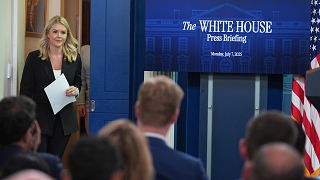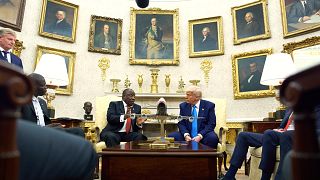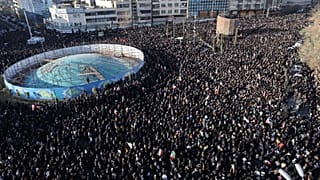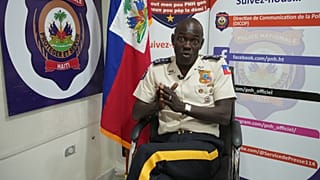South Africa
South Africans are voicing strong support for President Cyril Ramaphosa following a tense and high-profile meeting with U.S. President Donald Trump, during which Trump repeated unfounded allegations of a so-called “white genocide” in South Africa.
The meeting, held at the White House earlier this week, saw Trump accusing South Africa’s Black-led government of targeting white farmers through land seizures and racially motivated violence — claims widely discredited by experts and human rights groups. Instead of confronting Trump directly, Ramaphosa opted for a diplomatic approach, allowing members of his delegation, including renowned South African golfers Ernie Els and Retief Goosen, to help present a more accurate picture of the country.
In Johannesburg, local residents praised Ramaphosa’s response as dignified and strategic.
“I did think that President Ramaphosa represented the country well,” said Kyle Kemp. “The delegation he took over was very strategic, and I thought everyone put their best foot forward for our country.”
Gift Nxumalo, another Johannesburg resident, said that while Trump’s comments lacked depth and historical context, Ramaphosa’s response was commendable.
“Even though I feel like he (Trump) didn’t give enough information about the so-called white genocide in South Africa, Ramaphosa handled the situation very well,” Nxumalo said. “He should have told him that we have an ugly history, and songs like ‘Kill the Boer, Kill the Farmer’ are just struggle chants from the apartheid era — not calls to violence.”
The controversial chant, often cited out of context in international discourse, was part of the anti-apartheid struggle and is still sung by some as a symbol of resistance. However, it remains a flashpoint in discussions about racial tension in post-apartheid South Africa.
Trump, who returned to office with a hardline agenda on foreign affairs, has repeatedly accused South Africa’s government of enacting anti-white and anti-American policies. His claims have stirred backlash at home and abroad and have been sharply criticized for fueling division.
Ramaphosa, meanwhile, used the opportunity in Washington to stress that while South Africa continues to grapple with its complex history of racial inequality, the narrative of white genocide is not only false but dangerous. He emphasized his administration’s ongoing efforts to promote reconciliation and inclusive development in a country still healing from decades of apartheid rule.
South Africa’s apartheid system officially ended in 1994, following the country’s first democratic elections that brought Nelson Mandela to power. While economic and racial disparities remain, there have been significant strides toward national unity and equal rights.
The White House exchange has reignited debate over race relations in South Africa and the international perception of its land reform policies. But for many at home, Ramaphosa’s composure under pressure served as a reminder of the progress made — and the work still to come.
“He stood his ground,” Kemp said. “And that’s what matters.”












01:11
Cape Town's Muslim community breaks Ramadan fast
02:01
What's behind South Africa's plan to deploy army in high-crime areas?
01:03
South Africa starts mass vaccination program to halt foot-and-mouth outbreak
01:00
Pix of the Day, 26 February 2026
01:06
South Africa's debt stabilises for first time in 17 years
01:51
11 South African men allegedly tricked into fighting in Ukraine return